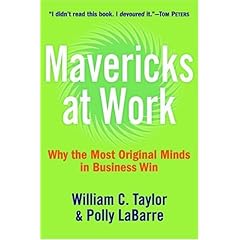 photo: Maggie Appleton
photo: Maggie AppletonOlivia Judson, scientist and New York Times blogger, sees curiosity as the defining characteristic of the best scientists and as something that must be caught, not taught:
In schools, science is often taught as a body of knowledge — a set of facts and equations. But all that is just a consequence of scientific activity.
Science itself is something else, something both more profound and less tangible. It is an attitude, a stance towards measuring, evaluating and describing the world that is based on skepticism, investigation and evidence. The hallmark is curiosity; the aim, to see the world as it is. This is not an attitude restricted to scientists, but it is, I think, more common among them. And it is not something taught so much as acquired during a training in research or by keeping company with scientists.
 Ryszard Kapuscinski, the Polish journalist and author who died a couple of years ago, argues for this same centrality of curiosity for historians and journalists (who are really just current historians) -- exemplified by Herodotus.
Ryszard Kapuscinski, the Polish journalist and author who died a couple of years ago, argues for this same centrality of curiosity for historians and journalists (who are really just current historians) -- exemplified by Herodotus.Kapuscinski kept company with him by carrying around a copy of Herodotus's History throughout his years as a foreign correspondent, and he describes the influence Herodotus had on him in his 2004 book, Travels with Herodotus (which I highly recommend as an introduction to either Kapuscinski or Herodotus).
Here are snippets from the book:
In Herodotus's days, the Greek word "history" meant something more like "investigation" or "inquiry".... [Herodotus] strove to find out, learn, and portray how history comes into being every day, how people create it, why its course oftens runs contrary to their efforts and expectations. [p. 257]
What set him in motion? Made him act? .... I think that it was simply curiosity about the world. The desire to be there, to see it at any cost, to experience it no matter what. It is actually a seldom encountered passion. [p. 258]
To be a conduit is their passion: therein lies their life mission. To walk, ride, find out -- and proclaim it at once to the world. There aren't many enthusiasts born. The average person is not especially curious about the world.... So when someone like Herodotus comes along -- a man possessed by a craving, a bug, a mania for knowledge, and endowed, furthermore, with intellect and powers of written expression -- it's not so surprising his rare existence should outlive him. [p. 267]Seth Godin, the business/marketing guru, has a short video on the importance of being curious -- a desire to understand, a desire to try, a desire to push the envelope. He also believes the curious are a minority and laments that the educational system does not (cannot?) promote it.
Can curiosity be described as having an agile mind? (like Cliff Stoll in his TED talk "18 Minutes with an Agile Mind")
Is curiosity the skill of being interested in the world? Randy Nelson, dean of Pixar University, in a short video on learning and working in the collaboration age (which is definitely worth watching), talks about Pixar looking for employees with four attributes: 1. Depth, 2. Breadth, 3. Communication, 4. Collaboration.
Number 2: "Breadth" relates to being a curious person, though Nelson defines it as the skill of being interested. He argues it's easy to find people who are interesting, but tough to find those who are more interested than interesting. These are the people you want to talk to, he says, not because they're clever, but because they amplify "me", they want to know what I know -- they lean in when I talk and ask me questions.
 Pixar is one of the companies highlighted in the book Mavericks at Work: Why the Most Original Minds in Business Win -- by William C. Taylor & Polly LaBarre (2006).
Pixar is one of the companies highlighted in the book Mavericks at Work: Why the Most Original Minds in Business Win -- by William C. Taylor & Polly LaBarre (2006).Nelson is quoted there on the same subject:
"We've made the leap from an idea-centered business to a people-centered business. Instead of developing ideas, we're developing people. We're trying to create a culture of learning, filled with life-long learners. It's no trick for talented people to be interesting, but it's a gift to be interested. We want an organization filled with interested people." [p. 230]
Isn't that what we all want?


